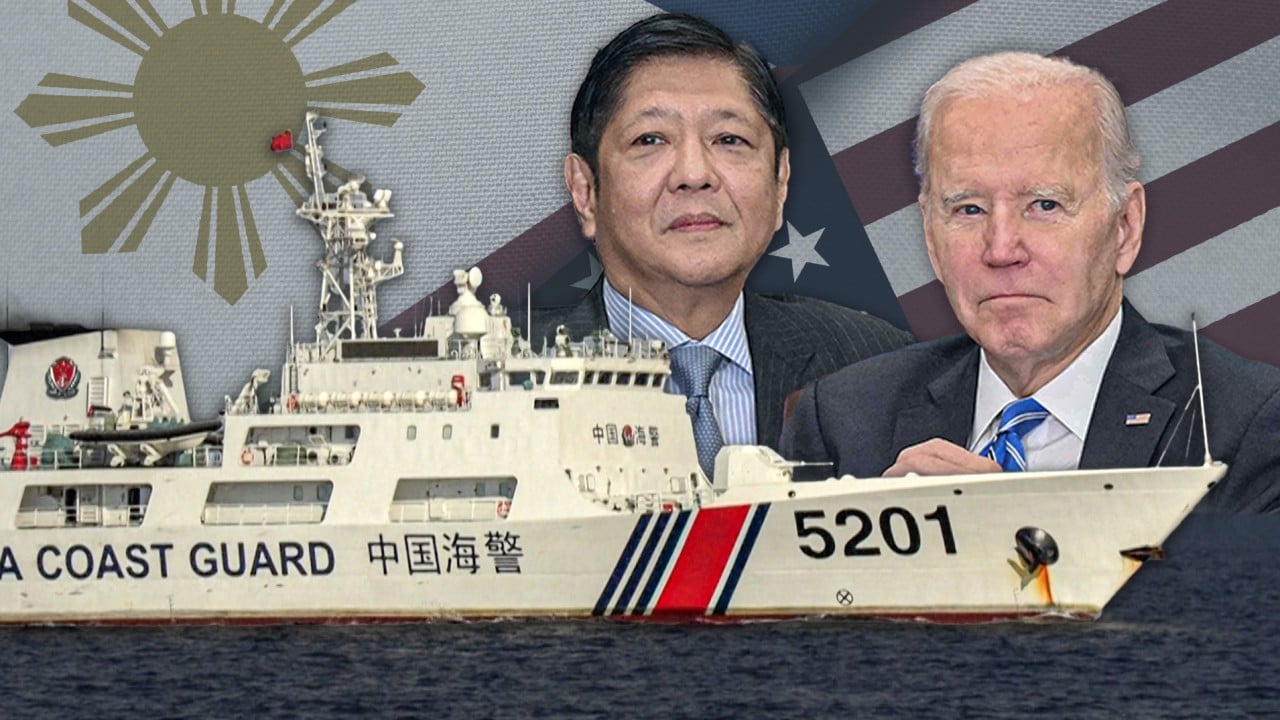[ad_1]
Marcos Jnr, nevertheless, stated he would “not thoughts” if the Philippines returned to concord with China, referencing their lengthy historical past, together with the institution of bilateral relations in 1976 and their 600-year buying and selling relationship.
“If we’re to look at DNA, there are only a few Filipinos with no Chinese language DNA. My household really makes a lot of the truth that we’ve got, inside our household tree, an notorious Chinese language pirate who used to function inside the waters of the then South China Sea. That can’t be discounted,” he stated.
“And that has at all times been a part of our pondering as we glance to China.”

He pointed on the market have been as many Chinese language investments and nationals within the Philippines as there have been Chinese language-Filipinos who have been born in China.
Marcos Jnr stated regardless of the skirmishes within the South China Sea, the Philippines recognised China as an “essential neighbour and associate”.
However working with Beijing didn’t imply working in a “vacuum” and so Manila would proceed to improve the capabilities of the Philippine Coast Guard and modernise the armed forces.
“It [Aukus] follows a quite simple primary precept {that a} coalition is – as a result of it has a bigger base – rather more strong in resisting any type of unilateral transfer by every other nation. I feel [Aukus] strengthens the place of Asia, of Asean, of the Indo-Pacific, once we are confronted with challenges and threats,” he stated.
When requested about his cultivation of hotter relations with the US, Marcos Jnr stated the closeness of the 2 international locations was additionally one primarily based on historical past, significantly their long-time mutual defence treaty. He added that Washington’s presence in Asia-Pacific was a “stabilising drive”.
However he cautioned that closeness to the US, or every other state, didn’t override the Philippines’ nationwide pursuits.
“Let me make it very, very clear. The Philippines acts for its personal pursuits, and the selections that we make with regards to overseas coverage is as a result of we imagine and are satisfied that it’s within the nationwide curiosity,” he stated.
“It’s not a coverage that has been foisted upon us by any nation. It’s one thing that we’ve got come to on our personal, it’s a conclusion that we’ve got arrived at by ourselves.”
Marcos Jnr added that Manila’s overseas coverage was one which rejected a geopolitical “regression into the outdated bipolar Chilly Warfare method”, through which smaller international locations just like the Philippines had to decide on a facet.
“There are those that proceed to see regional growth solely from the slim prism of nice energy rivalries. There are those that cut back these developments for a regional digression in the direction of outdated Chilly Warfare paradigms,” he stated.
Filipino envoy says South China Sea is the ‘actual flashpoint’ in Asia, not Taiwan
Filipino envoy says South China Sea is the ‘actual flashpoint’ in Asia, not Taiwan
Marcos Jnr cautioned in opposition to an overemphasis on and simplification of “sides”, as it will “subsume the respectable rights and pursuits” of middle-power international locations just like the Philippines, Australia and different Asean members into the pursuits of so-called superpowers.
“As if we’re mere pawns with no strategic company,” he stated.
“If we’re to efficiently navigate the treacherous waters led to by this latest geopolitical flux, we have to make clear, and we have to have foresight, that the way forward for this area will likely be formed not by one or two, however by many actors, and they’re going to every demand that their voices be heard, individually, and collectively, as certainly they need to be.”
Equally, he couldn’t see any international locations within the Asia-Pacific standing “idly”, passively caught up by the US-China rivalry and never taking motion.
“We within the Indo-Pacific should be sure that nice powers don’t deal with the world as an area for his or her competitors,” he stated.
“The pursuit of the nice powers’ respective strategic targets must not ever come on the expense of the curiosity of smaller states, nor of regional and worldwide peace.”
[ad_2]
Source link


